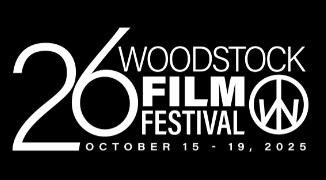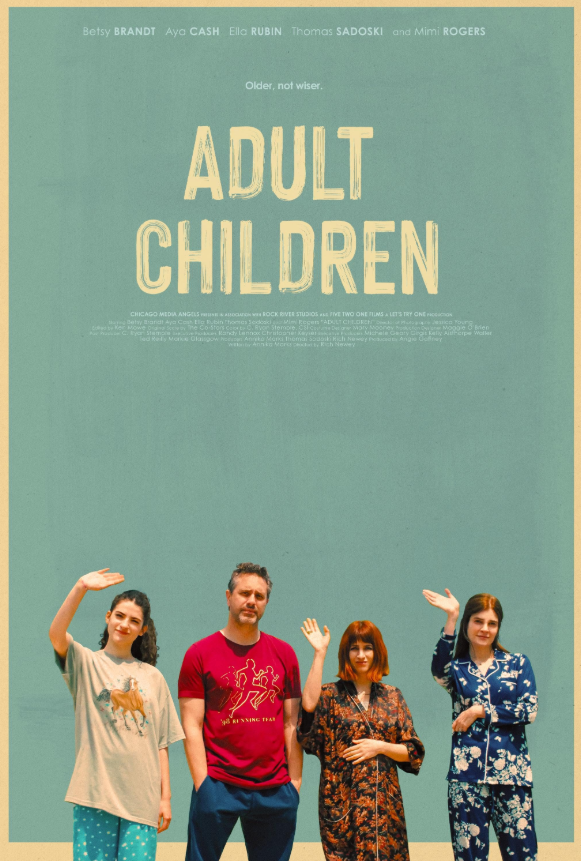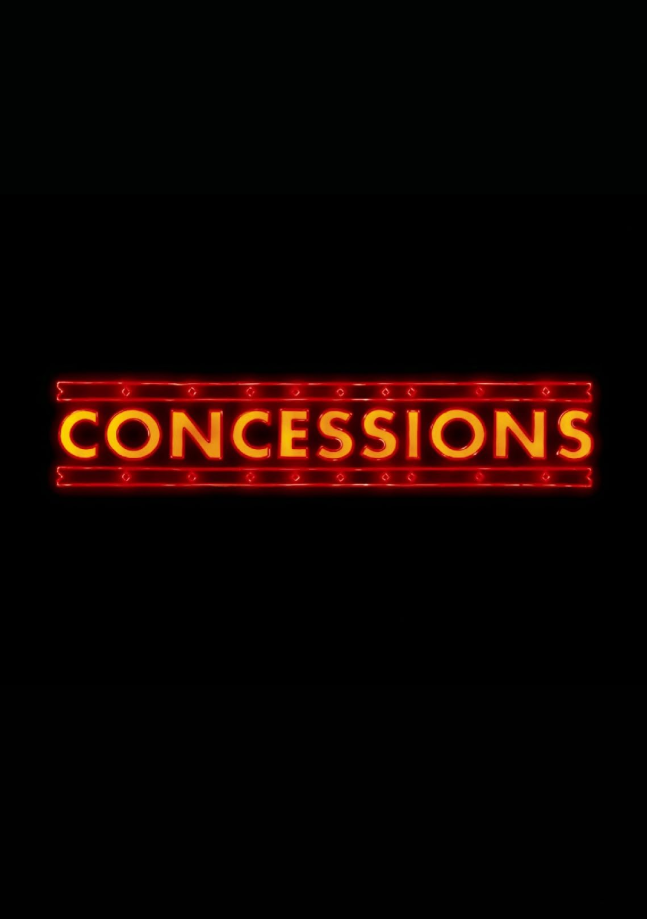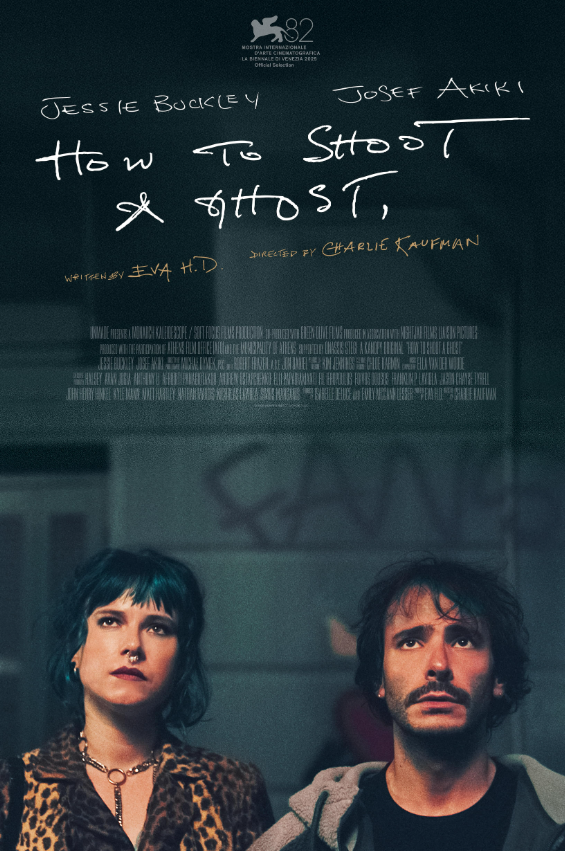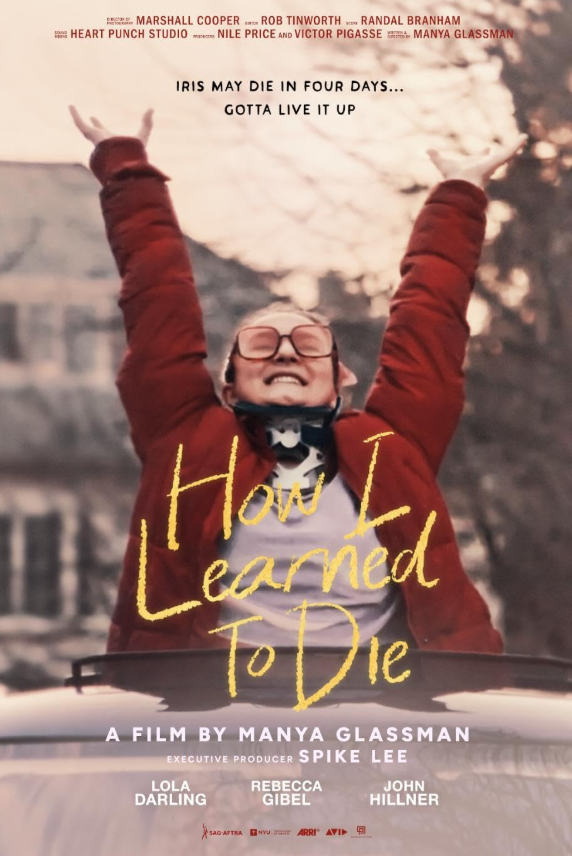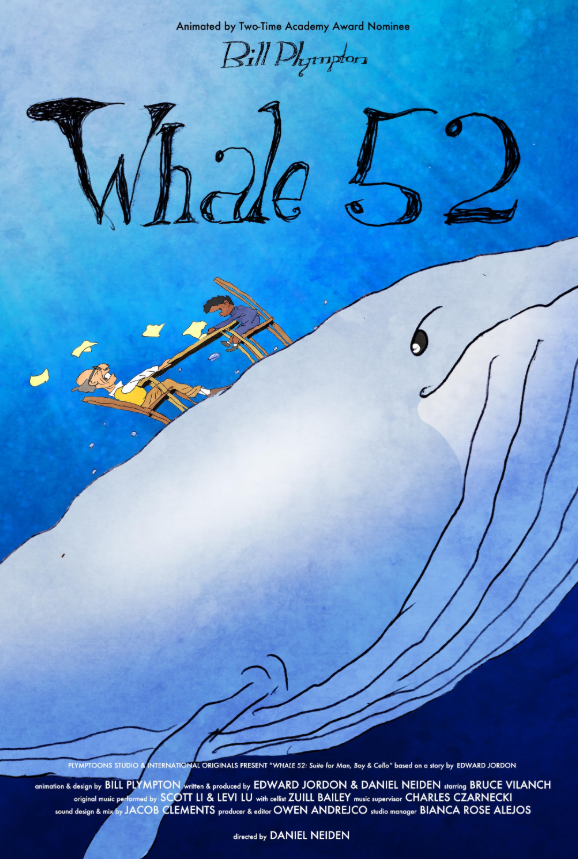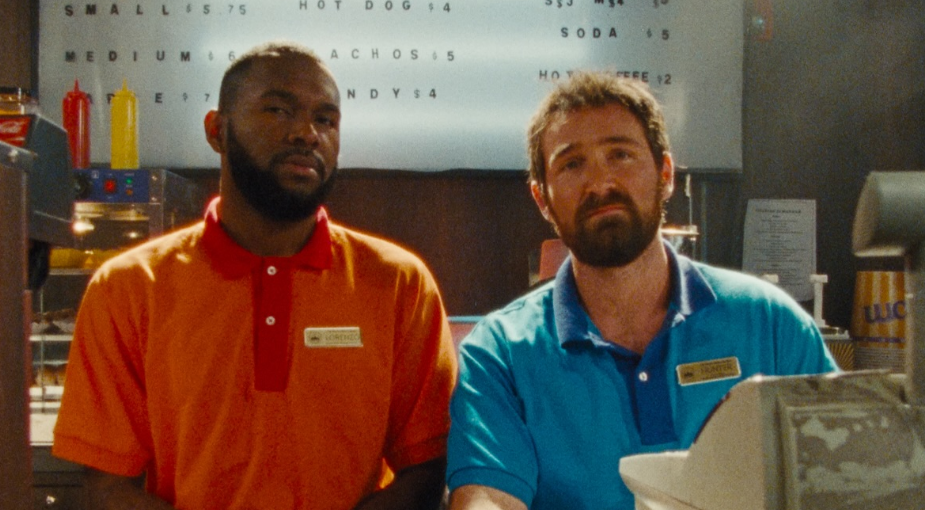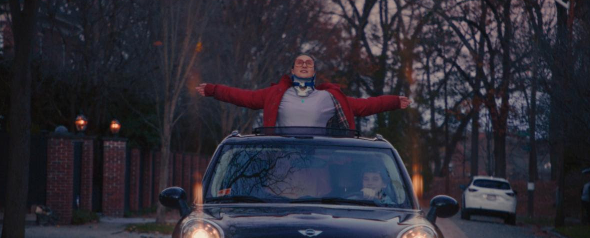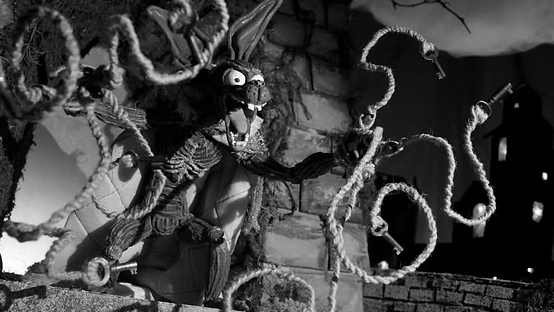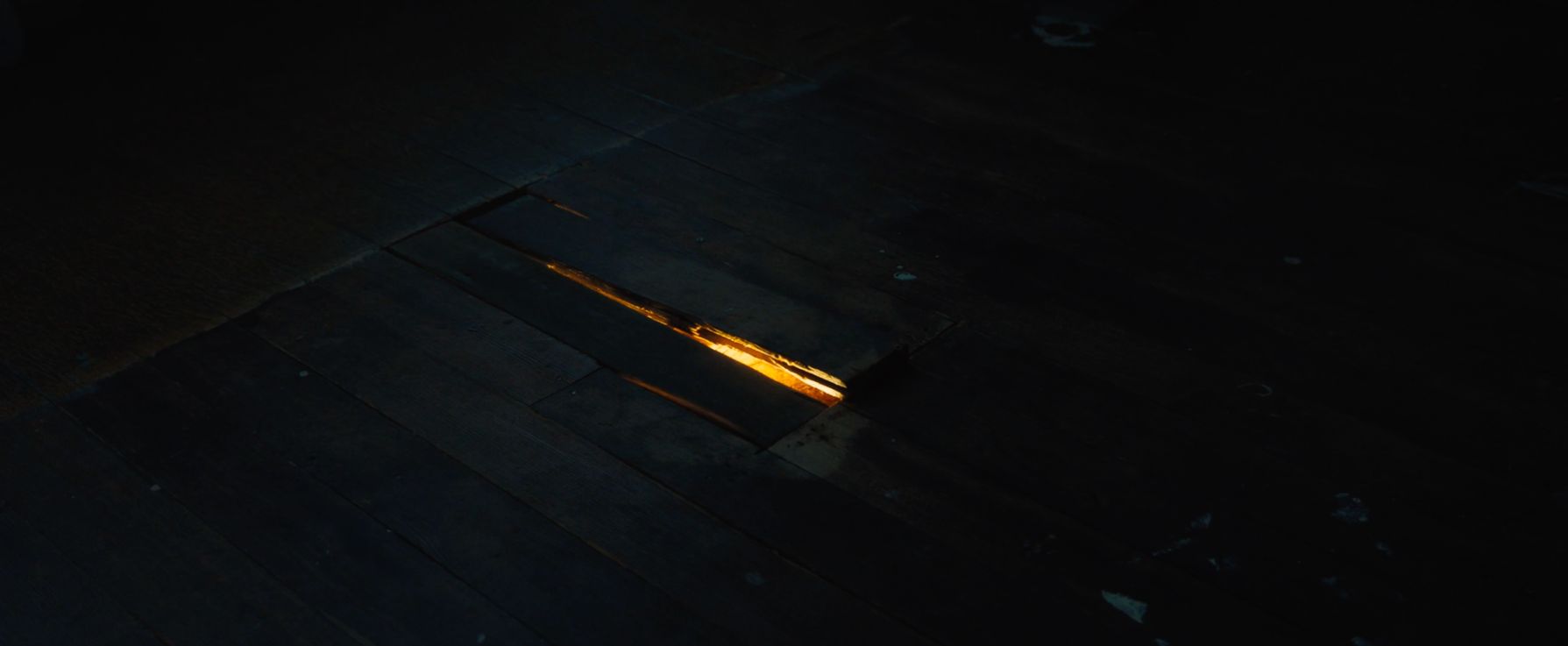26th Woodstock Film Festival - 2025
The 26th Annual Woodstock Film Festival ran October 15th-October 19th, 2025.!!!
A few more reviews are still to come…click on the poster or title for the review!!!
Selected Feature Films
Adult Children
⭐️⭐️⭐️⭐️⭐️
Blue Moon
⭐️⭐️⭐️⭐️
Christy
⭐️⭐️⭐️
Concessions
⭐️⭐️⭐️⭐️
An Eye for an Eye
⭐️⭐️⭐️⭐️
Floating Carousel
⭐️⭐️⭐️⭐️
On the End
⭐️⭐️⭐️⭐️
River of Grass
⭐️⭐️⭐️⭐️
Selected Short Films
Dear Shop Girl
⭐️⭐️⭐️⭐️
Honky Tonk Wednesdays
⭐️⭐️⭐️⭐️
How to Shoot a Ghost
⭐️⭐️⭐️⭐️
How I Learned to Die
⭐️⭐️⭐️⭐️
Les Bêtes
⭐️⭐️⭐️⭐️⭐️
The Littles
⭐️⭐️⭐️
Whale 52
⭐️⭐️⭐️⭐️
Adult Children
⭐️⭐️⭐️⭐️⭐️
Feature Film
Film Production Companies: 521 Films, Chicago Media Angels,
Let’s Try One Productions and Rock River Studios
Rating: NR / Run Time: 100 minutes
Language: English
Director: Rich Newey
Writer: Annika Marks
Starring: Betsy Brandt, Aya Cash, Ella Rubin, Thomas Sadoski and Mimi Rogers
“The three words that best describe me are…”
These immortal words challenge every high school student preparing their college admissions essay. For Morgan (Rubin), a young woman trying to define herself, they become more complicated than she imagined. About to head on a summer trip to Europe with her parents Mimi (Rogers) and Ben (Coburn Goss), her world is suddenly upended. Morgan is their only child together, but Mimi has three adult children from her first marriage — all in their thirties and beyond. When one of them, Josh (Sadoski), suffers a breakdown after his wife leaves him, wrecks his truck, and needs a place to stay until a rehab bed opens, Mimi decides the trip will go on as planned. She calls on her other children to help, and soon Lisa (Brandt) and Dalia (Cash) return home — both with personal crises of their own that make the timing oddly convenient.
Eager to finally bond with her half-siblings, Morgan convinces her parents to let her stay behind. She hopes it will help Josh — and maybe help her feel part of the family she’s always wanted to know. But her enthusiasm meets resistance. Each sibling is too wrapped up in their own struggles: Josh is fragile, Lisa is hiding a secret from her husband, and Dalia, ever the commitment-phobe, is once again running from love. Four adults under one roof — what could possibly go wrong?
Adult Children manages what many family dramedies struggle with — creating four fully developed, distinct characters who genuinely feel like a family. Sure, the title’s joke is obvious, but the storytelling feels authentic, even as the older siblings fall into familiar archetypes: Lisa the strict mom, Dalia the free-spirited artist, Josh the man-child. What elevates it is the strength of the performances. Brandt, Cash, and Sadoski bring such natural chemistry that you could easily believe they grew up together. Their banter and body language radiate an easy familiarity that makes the humor land and the emotion resonate.
As the outsider, Rubin’s Morgan adds a fresh layer to the mix, grounding the film’s chaos with youthful sincerity. She holds her own among the more seasoned cast, capturing a teen who’s both naive and earnest. Marks’ screenplay cleverly builds toward moments that feel earned — small jokes and gestures pay off later in subtle yet satisfying ways. None of it feels unnecessary, and her pacing keeps the film sharp and engaging.
Regular collaborators Annika Marks and director Rich Newey deliver a story that balances laugh-out-loud comedy with heartfelt vulnerability, never tipping into sentimentality. From a hilarious bit where recovering addict Josh is told, “Isn’t it nice to feel useful?” while rolling a joint for his sister, to a quiet, affecting scene between Morgan and Lisa in a doctor’s office, the film captures the contradictions of family — frustrating, funny, and fiercely loving all at once.
All in all, Adult Children is an honest, heartfelt look at family — a reminder that connection often comes when we stop searching for it and simply open our eyes to what’s right in front of us.
Review by Cinephile Mike
Blue Moon
⭐️⭐️⭐️⭐️
Feature Film
Film Production Companies: Sony Pictures Classics, Renovo Media Group,
Detour Pictures, Wild Atlantic Pictures and Cinetic Media
Rating: R / Run Time: 100 minutes
Language: English
Director: Richard Linklater
Writer: Robert Kaplow|
Starring: Ethan Hawke, Margaret Qualley, Bobby Cannavale, Jonah Lees,
Patrick Kennedy, Simon Delaney and Andrew Scott
“Who wants inoffensive art?”
It’s March 31, 1943, and the wind is sweeping down the plain as Oklahoma! opens on Broadway at the St. James Theatre. Lorenz Hart (an absolutely outstanding Ethan Hawke) slips out before the final curtain and makes his way to Sardi’s for a drink — and maybe a little sympathy — from his friend, bartender Eddie (Bobby Cannavale). He’s feeling blue: the show marks the first collaboration between his longtime writing partner Richard Rodgers (a subtle and welcome Scott) and Oscar Hammerstein II (Delaney), signaling the end of one of Broadway’s most beloved partnerships. Together, Rodgers and Hart gave audiences The Girl Friend, The Boys from Syracuse, A Connecticut Yankee, and Babes in Arms, but Hart’s personal struggles have finally pushed Rodgers to move on.
At Sardi’s, Hart airs his frustrations to Eddie and to Morty (Lees), a charming soldier on leave and the pianist for the night, whom Hart affectionately nicknames “Knuckles.” He’s also expecting the arrival of his new muse and love, Elizabeth Weiland (a charming though underused Margaret Qualley). But this being Sardi’s — the unofficial heart of the Great White Way — it’s not long before Rodgers, Hammerstein, and the rest of the Oklahoma! team pour in to celebrate Opening Night, nervously awaiting the all-important New York Times review. Amid the crowd, tensions rise and old wounds reopen. We see Hart and Rodgers’ strained but tender exchange, moments of vulnerability between Hart and Elizabeth, and even a witty encounter with fellow patron E.B. White (Kennedy), which playfully hints at the origins of a beloved children’s classic about small friends with big hearts.
Unfolding in real time — a structure Richard Linklater has long mastered, most notably in Before Sunset — Blue Moon is a talky but intimate chamber piece that gives Hawke room to shine as the diminutive yet larger-than-life Hart. Through clever use of forced perspective, cinematographer Shane F. Kelly subtly reminds us of Hart’s small stature without diminishing his presence. Even in moments of heartbreak, as Hart realizes Rodgers will thrive with Hammerstein, Hawke imbues him with such warmth and wit that he never feels like a tragic figure. He may be down, but this Hart, pardon the pun, still has heart.
Based on letters between Hart and Weiland, Kaplow’s screenplay captures both the humor and the melancholy of creative separation, weaving sharp, literate dialogue that lets laughter sneak in amid the sorrow — much like a great musical number that turns pain into melody.
If the film falters, it’s in trying to juggle two competing stories — the dissolution of Rodgers and Hart’s partnership and the romance between Hart and Weiland. Both are compelling, but neither gets quite enough time to resonate fully. The more engaging thread is unquestionably the creative breakup, which leaves you wanting a bit more. Still, Qualley and Scott make strong impressions, radiating old-Hollywood magnetism even in their brief screen time.
Linklater’s film, though modest in scale, finds its rhythm in nostalgia and performance. All in all, outstanding performances and a touch of bittersweet sentiment will have you feeling all the feels as Blue Moon plays its final tender notes.
Review by Cinephile Mike
*Previously published when screened at 37th Annual NewFest LGBTQ+ Film Festival (October 2025).
Christy
⭐️⭐️⭐️
Feature Film
Film Production Companies: Black Bear, Anonymous Content,
Votiv Films, Fifty-Fifty Films and Yoki
Rating: R / Run Time: 135 minutes
Language: English
Director: David Michôd
Writer(s): Mirrah Foulkes, Katherine Fugate and David Michôd
Starring: Sydney Sweeney, Ben Foster, Merritt Wever, Ethan Embry,
Coleman Pedigo, Jess Gabor, Katy O’Brian and Chad Coleman
“Do you know how easy it is to make people dislike you?”
Christy chronicles the life of the Coal Miner’s Daughter — no, not Loretta Lynn, but Christy Martin née Salters (an outstanding Sweeney) — the famed female boxer who became the first woman professionally signed by Don King (a delightful Coleman). The film traces her rise from winning the Toughman Competition in West Virginia in 1989 to her fateful return to the sport in 2010, following a tumultuous period that’s best discovered without spoilers for those unfamiliar with her true story.
In her early years, Christy struggles with the lack of acceptance from her parents Joyce (Wever) and Johnny (Embry) regarding her “lifestyle,” which she’s trying to make work with her “friend” Rosie (Gabor). While her parents believe the church can “fix” her, they remain supportive of her boxing career, traveling to ensure she gets proper training. After a key victory, Christy is approached by promoter Larry Carrier (Bill Kelly), who connects her with trainer Jim Martin (Foster). Initially reluctant, Jim ultimately takes her on — and soon convinces her that marrying him will be good for both her career and stability. When Rosie leaves her, Christy gives in, hoping this partnership will secure her success.
Sporting her signature pink and white gear, Christy quickly climbs the ranks of women’s boxing, eventually signing with Don King in Las Vegas. Her career takes off, though her ego occasionally alienates those around her. As the film follows her through her major bouts — including with Deirdre Gogarty (Stephanie Baur), Lisa Holewyne (O’Brian), and Laila Ali (Naomi Graham) — it also peels back the layers of a woman trapped between her public persona and private truth. Her volatile marriage to Jim grows increasingly suffocating, and the support she craves from her parents never comes. Everything builds toward that fateful night in 2010 that forever changed her life.
At its core, Christy is another sports biopic about overcoming adversity. While inspiring, it occasionally falls into familiar genre beats — a “been there, done that” retelling that feels a bit too polished for such a raw story. Christy Martin’s real-life journey is remarkable, but one can’t help feeling it might have been better served as a documentary rather than a glossy biopic built around expected emotional cues.
Still, the film’s watchability rests squarely on Sweeney’s powerhouse performance. She fully disappears into the role, radiating Christy’s grit, determination, and fragility. Each punch lands — both physical and emotional. Foster proves a fitting counterpart as Jim, crafting an unnervingly charismatic sociopath who makes your skin crawl. Wever and Embry make the most of limited screen time, with Wever in particular finding quiet moments of conflict and contradiction that linger.
Cinematographer Germain McMicking captures the fights with visceral immediacy — you feel every jab and hook — while editor Matt Villa assembles it all with kinetic rhythm. Yet between bouts, the narrative occasionally drags, weighed down by biopic conventions and predictable pacing. Director David Michôd, who showed such grit and urgency in 2010’s Animal Kingdom, seems constrained here by the genre’s formula.
All in all, Sydney Sweeney’s knockout performance keeps Christy in the fight, but you can’t help feeling that its subject deserves a film just as fearless as she was.
Review by Cinephile Mike
*Previously published when screened at the 78th Edinburgh International Film Festival (August 2025).
Concessions
⭐️⭐️⭐️⭐️
Feature Film
Film Production Companies: Terra Productions, Kebrado, Sentenza
Film Company
Rating: 15+ / Run Time: 91 minutes
Language: English
Director: Mas Bouzidi
Writer: Mas Bouzidi
Starring: Rob Riordan, Jonathan Lorenzo Price, Lana Rockwell, Ivory Aquino,
Volkan Eryaman, Greg Roman, Bob McAndrew, Sarah Okado,
Blake French, Max Madsen, with Josh Hamilton, Steven Ogg and Michael Madsen
“This place closing is exactly what I need to get my life on track.”
The Royal Alamo Cinema has stood proudly since 1973, and now, just over 50 years later, we’ve reached its final day. For Luke Plimpton (Ogg), this means the end of a family business. On hand for this bittersweet swan song are the small but loyal staff: Hunter (Riordan) and Lorenzo (Price) manning concessions, Deana (Rockwell) in the box office, Ron (McAndrew) ushering, Randy (French) keeping security, and Rita (Okada) running the projectors. With “potential future classics” like Taft! The Musical, Schindler’s List Refueled, and The Bad Bloke of Bedford Avenue on the marquee, it should be a fairly calm day.
Of course, it isn’t. Visitors include stunt double Rex Fuel (the late, great Michael Madsen), eager to catch one of his own films, and local newscaster Linda Chung (Aquino), covering the theatre’s closing live. There’s also the ongoing commentary from Sergio (Eryaman) and his band—delightful and witty characters straight out of the Kevin Smith playbook. Some staff know their next step in life, others don’t, and their conversations on work, purpose, and the passage of time give the film its heart.
In his feature debut, writer/director Mas Bouzidi has crafted a love letter to the slacker cinema of the mid-90s. Comparisons to Smith’s Clerks, Allan Moyle’s Empire Records, and Richard Linklater’s Dazed and Confused are inevitable—but Bouzidi’s goal is homage, not imitation. Structured in sequences that move through the day, the film offers debates on famous franchises, the identities of obscure musicians, and musings from a scene-stealing character known only as The Theater Philosopher (Roman). I won’t lie, I feel I have made many of those insights similarly in life, though I don’t make some of the decisions he does.
The ensemble cast is a delight. Riordan and Price share sharp, knowing banter that embodies the spirit of the genre. Eryaman’s Sergio delivers perfectly dry humor, while Ogg—though underused—injects moments of that intense energy fans loved from The Walking Dead. And then there’s Michael Madsen. In one of his final performances, he’s playful, flirtatious, and deeply affecting in a scene that may bring a tear to your eye.
Filmed in a still-functioning upstate New York cinema, the location feels like a time capsule, though we understand wholeheartedly that we are in the present day. It’s cash-only, has a cigarette machine in the lobby (despite the “no smoking” announcements made by Luke over the intercom), and screens only 35mm prints—mirroring the tactile, analog aesthetic of Concessions itself.
Bouzidi’s cinephile passion is evident. While steeped in cinematic influences, he keeps the conversations topical and the themes immediate. The result may divide audiences, but its heart, humor, and sincerity—plus a game cast—make it resonate. It’s also a timely reminder: nothing beats the moviegoing experience, so get out there and go.
All in all, cinephiles will savor the Easter eggs tucked throughout, and casual viewers will appreciate this affectionate love letter to the theatre.
For an exclusive discussion with Writer/Director Mas Bouzidi, click HERE.
Review by Cinephile Mike
*Previously published when screened at the 78th Edinburgh International Film Festival (August 2025).
An Eye for an Eye
⭐️⭐️⭐️⭐️
Feature Film
Film Production Companies: Unchained Productions, SeeTô Productions,
Closer Media, Elk Films, Pumpernickel Films
Rating: NR / Run Time: 84 minutes
Language: Farsi with English Subtitles
Director(s): Tanaz Eshaghian and Farzad Jafari
Starring: Tahereh, Mohsen, Miss Jafarzadeghan, Bashir, Saeed and Ms. Adibi
“The worst punishment wasn’t prison.”
After serving 14 years in prison for murdering her husband, Tahereh awaits her retribution sentence. Now living with her son Mohsen, she must wait for a decision from her late husband Hossein’s family. Years earlier, after enduring prolonged physical and emotional abuse, Tahereh—alongside her two daughters—strangled and buried Hossein in the home they shared. Five years later, she was arrested. Under Iranian Sharia law, her fate lies in the hands of Bashir, Hossein’s brother, who must decide whether she will be executed, or spared in exchange for blood money paid to the family.
Bashir, himself struggling financially, is being pressured by his grieving mother, Ms. Adibi, to demand execution. She believes fully in the Quranic notion of an eye for an eye. However, after speaking with anti-execution advocate Ms. Jafarzadeghan, Bashir sets a price: 1.5 billion toman (approximately $36,000). If paid, Tahereh will walk free.
However, Tahereh and Mohsen are barely scraping by. A smaller sum is eventually agreed upon—but before the new deal can be notarized by the Iranian courts, more tragedy will befall Bashir’s family, and negotiations will begin again, and this time, less mercy. Tahereh remains defiant. She doesn’t deny the killing and even publicly claims she doesn’t regret it, complicating public sympathy and the fundraising efforts needed to save her life. Even Ms. Jafarzadeghan’s organization, while supportive, must weigh which cases can garner public backing—and Tahereh’s isn’t easy to champion.
Directors Eshaghian and Jafari cover the years of this casebuilding incredible suspense through hidden camera footage, and intimate interviews with the various subjects on both sides of the case and the intermediaries. Editors Soren B. Ebbe and Hayedeh Safiyari construct a thriller-like momentum, punctuated by a haunting score from Kristian Eidnes Andersen. The film plays like a ticking-clock drama, making you forget at times that it’s a documentary—you’re never quite sure how it will end.
The film not only highlights the struggles of these two families, but also the inequality of genders in the society. More than once it is referenced that Tahereh’s actions were only taken after several attempts to divorce her husband were ignored and glossed over. We hear from some of the intermediaries that in Iran, a man can divorce his wife on a whim if he loses even the slightest bit of interest, but there is no cause for the other way around. The film doesn't shy away from exploring the ripple effects of trauma either, showing how fractured both families have become—Hossein’s children and Bashir’s son speak to a pain and moral conflict that seems impossible to reconcile.
All in all, An Eye for an Eye is a gripping and emotionally complex documentary that tackles injustice, grief, and survival in a society where justice often depends on your gender—and your money.
Review by Cinephile Mike
*Previously published when screened at the 24th Tribeca Film Festival (June 2025).
Floating Carousel
⭐️⭐️⭐️⭐️
Feature Film
Film Production Companies: Drama House Pictures and Best Dressed Films
Rating: NR / Run Time: 100 minutes
Language: English
Director(s): Delilah Napier and Lucy Powers
Writer(s): Delilah Napier and Lucy Powers
Starring: Glori Dei Filippone, Lucy Powers, Delilah Napier, Reg Rogers,
Dylan T. Jackson, Dash Perry, Elsie Hewitt, Sean Grandiollo, Julian Cihi
with Jessica Hecht and Dylan Baker
“People usually find that they’re unhappy because they convince themselves that there’s a better place, but there’s not. This is it.”
Picture a modern-day Breakfast Club, but swap detention for dating apps and small-town angst for New York City heartbreak. Here, a Gender Studies grad student, a wandering lover, a sugar baby in denial, a cabaret hopeful, and a professional cuddler stumble through love in what feels like the loneliest era yet in Delilah Napier and Lucy Powers’ new black comedy.
The film unfolds through a series of vignettes, each offering a different lens on love and loneliness. While the characters rarely share scenes, their emotional arcs echo one another, creating a subtle throughline of yearning and self-discovery. Alex (Filippone), our Gender Studies student, can’t seem to make things work—too smart, too free, or maybe just too self-aware for the people she meets. One encounter, though, might complicate things with her colleagues at Columbia. Ruby (Powers), our wandering lover, finally finds herself confronted by one of her partners, forcing her to face some uncomfortable truths. Olivia (Napier), our sugar baby and Ruby’s best friend and roommate, is trying to find happiness with her current partner, Eric (Rogers)—but being in her early twenties, she’s met with the not-so-romantic reality of Eric’s desire to start a family, even if it means going through a surrogate. Sebastian (Jackson), our aspiring cabaret singer, grapples with stage fright, self-doubt, and complicated feelings for fellow performer St. Thomas (Perry) and accompanist Jacob (Grandillo). Finally, Sasha (Hewitt), a professional cuddler, takes comfort in her unconventional career path—until one of her regular clients decides to cuddle up elsewhere.
While these plotlines might feel familiar at first glance, Napier and Powers elevate them by leaning into absurdity, creating a world that teeters between reality and dystopia—culminating in a citywide crisis that’s more skin-crawlingly cringey than even our pandemic past. The chaos is sparked by one man: Shanay Hunt (Cihi), a serial dater whose manipulative habits finally catch up to him. His M.O.? Scheduling 8:30 p.m. dinners at the restaurant below his apartment—one that conveniently closes at 9—ensuring a quick invitation upstairs. Unfortunately for Shanay, his dating overlap soon comes to light, and the women decide it’s time for some karmic payback.
The transitions between stories feel fluid rather than segmented, guided by Napier and Powers’ sharp visual eye and a delightfully carnivalesque score by Anna Drubich that underscores the city’s absurd, beating heart. Each performer brings distinct energy—restless, vulnerable, or quietly aching—and Napier and Powers pull off an impressive multi-hyphenate feat as writers, directors, editors, and actors. The film’s heightened reality fuses the satirical wit of Alexander Payne’s Election with a postmodern echo of Lena Dunham’s Girls.
Equal parts disturbing and funny, this black comedy dares you to laugh at the most awkward of human impulses—nowhere more so than in an entertaining panel scene for “The Future of Professional Intimacy.” Taken together, the stories build a portrait of modern connection that’s both cynical and tender—a reminder that even in a city of millions, intimacy can feel like a disappearing act.
And, despite your best efforts (and best dating profiles), hell hath no fury like a person scorned. All in all, Napier and Powers give voice to Gen Z’s romantic chaos in a comedy that will literally give you all the feels—good, bad, and occasionally, a little itchy.
For an exclusive discussion with Co-Writers, Directors, Editors, Producers and Performers Delilah Napier and Lucy Powers, click HERE.
Review by Cinephile Mike
On the End
⭐️⭐️⭐️⭐️
Feature Film
Film Production Companies: Moontown Productions, Wise Child Studios,
Red Barn Films and Senior Post
Rating: NR / Run Time: 102 minutes
Language: English
Director: Ari Selinger
Writer: Ari Selinger
Starring: Tim Blake Nelson, Mireille Enos, James Badge Dale, Matthew Maher,
Desmin Borges, Glenn Fleshler with Anna Chlumsky and Lois Smith
“He didn’t have a lot of money, but that’s OK, because he had heart.”
Tom Ferreira (Nelson) is a middle-aged mechanic living in his family’s bungalow in Easthampton, one of the more affluent neighborhoods in the famed Hamptons. A hoarder who lives with his brother Milton (Maher) and next door to his aunt Dolly (Smith), Tom leads a quiet, lonely life. His most frequent interaction is with a woman named Freckles (Enos), whom he meets in a Yahoo! chat room. One day, Freckles calls to say she’s coming to visit, sending Tom over the moon. At first, she is disturbed by the chaotic, hoarder-filled environment, but circumstances lead the two to move in together. Bonding over their shared diabetes diagnosis, they build a home in all its squalor — but a happy one.
Meanwhile, Tom’s aunt, never a fan of his, is approached by realtor Jess Finch (Chlumsky), who promises to make Dolly a millionaire thanks to the value of her property. The challenge? Trudie’s home sits next door to Tom’s. This sets up a David-and-Goliath story as Jess involves herself with local government officials, including townsman Ray Mclee (Fleshler) and her husband, Detective John Finch (Dale). Slowly, the town begins to take sides, and despite prior relationships with Tom, certain facts — some true, some not — are made public. Tom and Freckles are forced to take a stand. But the battle is far from simple. While Tom is seen as a blue-collar outsider, he proves himself more complex than the town expects, eventually taking a bold step to bring charges against the Hamptons — landing on the front page of The New York Times.
First-time feature director Ari Selinger brings a fascinating true story to life. His script captures the elements of Ferreira’s journey in the vein of other compelling true-life dramas like Erin Brockovich or Dark Waters. While addressing serious illness and legal battles, Selinger finds moments of levity, creating an honest and relatable portrayal of life. Nelson and Enos deliver standout performances: Nelson imbues Tom with gravitas, while Enos’ infectious smile as Freckles makes the audience root for them every step of the way. Smith also makes a memorable impression, delivering humor and sharpness even in a slightly unlikeable role. Cinematographer Conor Murphy gives the Hamptons itself a strong presence, from the glitzy homes of the town officials to Tom’s weathered bungalow and the vast, stunning stretches of beach — a setting that feels fully alive.
At its core, On the End is both a love story and a true David-and-Goliath tale. Selinger skillfully balances these elements, giving us a well-rounded narrative about a man who simply wants to live a happy life in peace. Tom Ferreira’s Everyman journey will both break your heart and inspire you.
All in all, On the End tells a little-known story of Hamptons history while reminding us to always follow our hearts, celebrating resilience, love, and the courage to stand up for what’s right.
For an exclusive discussion with Writer/Director Ari Selenger, click HERE.
Review by Cinephile Mike
River of Grass
⭐️⭐️⭐️⭐️
Feature Film
Film Production Companies: Field of Vision and Walking Productions
Rating: NR / Run Time: 82 minutes
Language: English
Director: Sasha Wortzel
Writer: Sasha Wortzel
Starring: Betty Osceola, Kina Phillips and Marjory Stoneman Douglas
“There are no other Everglades in the world.”
Marjory Stoneman Douglas is a celebrated author best known for her 1947 book The Everglades: River of Grass. From this work, we learned just how significant the Everglades truly are. Douglas coined the phrase “river of grass” to describe what had long been dismissed as a vast, miasmic swamp. Through her writing, she warned of what would happen if society continued to destroy this land—one that provides the life-sustaining resources essential to Miami and beyond.
In this moving documentary, filmmaker Sasha Wortzel—an Everglades native who has endured her share of devastating hurricanes—recounts a dream in which Douglas appeared to her, inspiring her to tell the story of this misunderstood region. Douglas, who lived to be 108 before passing in 1998, serves as the film’s guiding voice. Wortzel delves into Douglas’ journals and writings to better understand the land she so passionately defended, reminding viewers that the Everglades are not just a swamp but a vital artery in Florida’s ecosystem and identity.
Wortzel crafts not just a documentary about the Everglades, but a portrait of the species and people who continue to fight for its survival. One key species—the alligator—is revealed to be a keystone presence, essential to shaping and maintaining the ecosystem. Among the film’s subjects is Betty Osceola, an Indigenous activist of the Miccosukee Tribe who works tirelessly to preserve the land and its resources. We see her leading prayer walks outside the massive factories that threaten to destroy the area. We also meet Kina Phillips, a mother campaigning against sugarcane burning across the region, which pollutes the air and accelerates ecological damage. These are just two of many voices striving to save the Everglades.
To tell this story, Wortzel collaborates with co-editor Rebecca Adorno Dávila to craft a tightly woven narrative that blends talking-head interviews, verité-style coverage, and evocative archival footage—including old films, home movies, and recordings of Douglas herself. Her sharp wit and fearlessness come through in every word. Early in the film, Douglas declares, “A man’s life on Earth is limited by the conflict between his stupidity and his intelligence,” a line that lingers as a powerful commentary on overdevelopment and environmental disregard.
Narrating as if through a lucid dream, Wortzel invites viewers to pause and truly see this extraordinary landscape. Cinematographer J. Bennett captures sweeping, meditative images of the Everglades, making the environment its own living character. Between Wortzel’s reflections on her upbringing and excerpts from Douglas’ prose, the film offers long, tranquil sequences that let nature breathe. Whether through present-day vistas or archival glimpses of early exploration, the majesty of the Everglades is fully realized.
All in all, Wortzel’s tender, urgent cry to arms leaves you feeling as though you’ve drifted through the Everglades yourself—experiencing their quiet beauty like a local—and wanting to see them preserved for generations to come.
Review by Cinephile Mike
Review by Cinephile Mike
Dear Shop Girl
⭐️⭐️⭐️⭐️
Short Film
Vacancy Arts, Nightjar Films, Gigantic Pictures and Monarch
Kaleidoscope
Rating: NR / Run Time: 14 minutes
Language: English
Director: Nira Burstein
Writer: Nira Burstein
Starring: Rory Culkin, Lorraine Farris and Fred Armison
“Are you gonna show me that jacket or just keep wasting my precious ever dwindling time?”
Our Shop Girl (Farris) isn’t doing so well with her landlord (Armisen), as an opening phone call makes clear. Funds are low, excuses aren’t helping, and she’s feeling adrift. Her day takes an unexpected turn when a lone customer (Culkin) enters the store and calmly announces he’s looking for the clothes he plans to kill himself in. Taken aback, she hesitates before offering a few suggestions, trying to navigate this surreal and unsettling exchange. What follows is an oddly tender retail interaction that slowly veers into darker, more introspective territory.
Primarily a two-hander between Farris and Culkin (with Armisen heard briefly over the phone), their awkward chemistry fits perfectly with the absurdity of the situation. Farris’ soft, airy vocal—reminiscent of Pamela Anderson—brings just the right amount of brightness to offset Culkin’s weary melancholy. Composer Ali Helnwein’s score, shifting between comforting and haunting, heightens the tension and underlines the tonal contrasts beautifully.
While the film touches on heavy themes, it does so with a light, curious touch that asks deeper questions about connection, empathy, and how we rationalize the choices we make. All in all, Burstein crafts a touching, quietly powerful story that lingers as Helnwein’s final notes fade away.
Honky Tonk Wednesdays
⭐️⭐️⭐️⭐️
Short Film
Film Production Companies: Hudson House Films
Rating: NR / Run Time: 16 minutes
Language: English
Director: Al Markman
Starring: Connor Kennedy, Barry Koffler, Sherril Silver
and “Commander” Jack Straub
“Dancing is three things, your head, your heart and your groin.”
At the local VFW in Kingston, NY, there isn’t a whole lot to do—but if you’re in the mood for good music or eager to learn the two-step, that’s the place to be. Every Wednesday, the community gathers to enjoy a slice of Southern culture that feels refreshingly out of place in the Northeast.
The idea for Honky Tonk Wednesdays came from musician Connor Kennedy, who saw an opportunity to bring a bit of that spirit to town—and a new tradition was born. Locals flock from all around to drink cheap beer, hear live music, and dance the night away. And for those who don’t know the steps, there’s even a class to help you get started.
Director Al Markman assembles a lively mix of talking-head interviews and fly-on-the-wall footage, capturing the energy, humor, and warmth of the crowd. You can feel the community’s passion radiate off the screen, buoyed by performances from Connor Kennedy and the New Original Locals and several others. Honky Tonk Wednesdays is a joyful snapshot of small-town connection and country music camaraderie. All in all, this love letter to two-stepping and twang might just make you want to head up to Kingston for a drink and a tune.
Review by Cinephile Mike
How to Shoot a Ghost
⭐️⭐️⭐️⭐️
Short Film
Film Production Companies: Unmade, Kanopy, Mighty Engine, Monarch
Kaleidoscope and Soft Focus Features
Rating: NR / Run Time: 27 minutes
Language: English
Director: Charlie Kaufman
Writer: Eva H.D.
Starring: Jessie Buckley, Josef Akiki and Eva H.D.
“They met on the day after the last day of their lives.”
Two lost souls — one a photographer (Buckley), the other a translator (Akiki) — meet shortly after their physical bodies no longer exist. They wander the streets of Athens, trying to find their place and understand their new roles in this in-between state. Whether slipping into a club, peering through windows, or silently observing people on public transportation, they process everything on a new level. Glimpses of their past lives appear throughout, but the film doesn’t linger on them or seek to assign meaning. Instead, it’s about how this new connection shapes who they might become. Along their journey, they encounter other ghosts, all roaming this historic city. Archival footage of Athens is woven in, reflecting how the city’s own history of struggle and ruin mirrors the quiet anguish of the two leads.
In virtually dialogue-free performances, Buckley and Akiki rely on expression and presence, their emotions conveyed through subtle looks and gestures. Voiceovers from both, along with poetic narration by writer Eva H.D., lend the film a meditative rhythm as they wrestle with what was, what is, and what might be. By offering only faint glimpses of their former lives, the film centers us firmly in the present — in a version of Athens that feels as ghostly and decayed as its inhabitants. It’s a philosophical exploration of human connection, loss, and the search for meaning amid uncertainty. All in all, this is a haunting, poetic reflection on what it means to drift between worlds — both literal and emotional — and how even in death, we long to be understood.
Review by Cinephile Mike
How I Learned to Die
⭐️⭐️⭐️⭐️
Short Film
Rating: NR / Run Time: 19 minutes
Language: English
Director: Manya Glassman
Writer: Manya Glassman
Starring: Lola Darling, Rebecca Gibel, John Hillner, Aijia Tang and
James Wert
“Let me provide some context.”
If you had a 60% chance of dying within four days, what would you do? This is the question on Iris' (Darling) mind. As a result of a crippling tumor on her third vertebra, she spends her days in a neck brace, pondering what her teenage self should accomplish. She keeps a list in her notebook. Among those things: first kiss, get drunk, drive a car without a license...all honest firsts for a teenager looking towards the end. As she tries to check items off, new ones keep getting added as they come to her. Providing comfort, and a list assist, is her best friend Kara (Tang), who, for a fellow teen, asks some surprisingly deep, reflective questions. There’s also her friend Drew (Wert), who helps turn a few of those list items into reality. Not providing quite as much (at least in Iris’ eyes) are her mother, Rachel (Gibel) and father, Sam (Hillner), who are finding different ways to process what is happening to their daughter.
In the midst of all this, Glassman's script is a pleasant, if somewhat mixed bag. It opens with a great break-the-fourth-wall moment, and closes with a satisfying ending — well, as satisfying as it can be given the circumstances. The pacing in the middle wobbles a bit, but for a twenty-minute short, it rights itself when it counts. The standout here is Darling. Her energy is infectious, grounding the performance with warmth and heart. In her acting debut, she brings a bubbly presence that wouldn’t feel out of place in a primetime sitcom. All in all, this is a touching dramedy with real heart and reminds us that despite our age, while we all process life’s challenges differently, we still need to live.
Review by Cinephile Mike
*Previously published when screened at the Tribeca Film Festival (June 2025).
Les Bêtes
⭐️⭐️⭐️⭐️⭐️
Short Film
Film Production Companies: Red Hatchet Films
Rating: NR / Run Time: 12 minutes
Language: English
Director: Michael Granberry
Writer: Wladyslaw Starewicz
One night, on the roof of a castle, a strange bunny summons various guests of all shapes, sizes and types to a performance. Much like Chernabog did in the “Night on Bald Mountain” sequence from Disney’s Fantasia, all of the otherworldly beings gather by flight, walk or vehicle. Once together, they arrive at the court of the King of the realm, who sits resplendent on his throne with his subjects aligned on either side as the bunny’s minions dance, play and entertain the court. As these creatures perform, they are mocked by the guests and are even treated to some less than desirable behaviors. Manipulating the King is his jester who leads the King to believe that the bunny is up to no good, and this will have ramifications for all in attendance at the event.
Michael Granberry, inspired by the work of Ladislas Starevich, has crafted a stunning stop-motion animated tale of consequence and vengeance. Instead of using a script to tell the story, he instead, smartly, chooses to let the piece play out with no dialogue and be completely underscored by a gorgeous, fantastical musical score by Lito Velasco that tells more emotion in the music than could be told in dialogue. In fact, the expressions on the faces are so distinct and specific, you can almost play the dialogue in your head. The majority of the film is in crisp black and white save one particular sequence that, again, calls to mind the Fantasia sequence referenced before. All in all, Granberry shows to be a unique voice in the stop-motion realm and the finished product is awe inspiring.
Review by Cinephile Mike
*Previously published when screened at the 50th Boston Sci Fi Film Festival (February 2025).
The Littles
⭐️⭐️⭐️
Short Film
Film Production Company: Cave Rock Publishing
Rating: NR / Run Time: 7 minutes
Language: English
Director: Andrew Duplessie
Writer: Andrew Duplessie
Starring: Violet McGraw, Janel Parrish and Dominic Sherwood
“Don’t be scared.”
The sound is coming from inside the house, as Juliet (McGraw) quickly discovers when she keeps battling a loose floorboard in her bedroom. Despite her father Damon’s (Sherwood) attempt to nail it down, and her mother Sarah’s (Parrish) commentary, the household seems calm—until night falls. As the boards continue popping up, Juliet struggles to get any sleep, noticing an eerie light shining through. Her investigation reveals that not only is the sound coming from inside the house, but her family is not alone. A tense standoff ensues as Damon’s quick carpentry fix meets an even bigger, hidden challenge below.
Duplessie has crafted a clever premise that blends fun storytelling, genuinely creepy horror elements, and delightfully eerie animation by Anthony Scott. Cornel Wilczek’s tense orchestration and Eugenio Battaglia’s immersive sound design elevate the experience, making the short a real treat for the senses. That said, while I enjoyed the short, it ultimately feels more like an extended trailer than a fully realized story. The narrative teases a larger world and leaves the viewer wanting more. All in all, it’s an inventive and enjoyable watch, but it’s clearly (and hopefully) a setup for something bigger.
Review by Cinephile Mike
*Previously published when screened at New York Comic Con
(October 2025).
Review by Cinephile Mike
Whale 52
⭐️⭐️⭐️⭐️
Short Film
Film Production Companies: International Originals and Plymptoons
Rating: NR / Run Time: 11 minutes
Language: English
Director: Daniel Neiden
Writer: Edward Jordon and Daniel Neiden
Starring: Bruce Vilanch and Parker Allana Hughes
“Do you want me to talk or write?”
Enam (voiced by Hughes) is a young man with selective mutism who attends a private school but doesn’t communicate with anyone. Kaufman (voiced by Vilanch) is an aging widower and former musician who volunteers at the school and has been assigned to work with Enam. After three months of silence, Kaufman buys him a journal and a quill pen from the dollar store — a simple gesture that magically unlocks the secrets hidden within Enam.
Enam begins to communicate through writing in the book and asks that Kaufman respond in kind. Their written exchanges soon spark a connection as Enam introduces Kaufman to the story of Whale 52 — the legend of the loneliest whale, whose calls go unheard because he sings at a frequency no other whale can detect. Through this tale, Enam starts to open up, and a touching bond forms between the two as they write to each other about TV shows, games, and even their personal secrets.
Rendered in Bill Plympton’s distinctive hand-drawn animation style, the film immerses us in the quiet yet profound world of two souls learning to heal through unconventional communication. The tender orchestral score by Scott Li and Qiujiang Levi Lu — much of it led by the cello — perfectly complements this journey of self-discovery and connection. All in all, this touching animated short reminds us that no matter how we communicate, there is always a way to find that connection… all we have to do is look.
